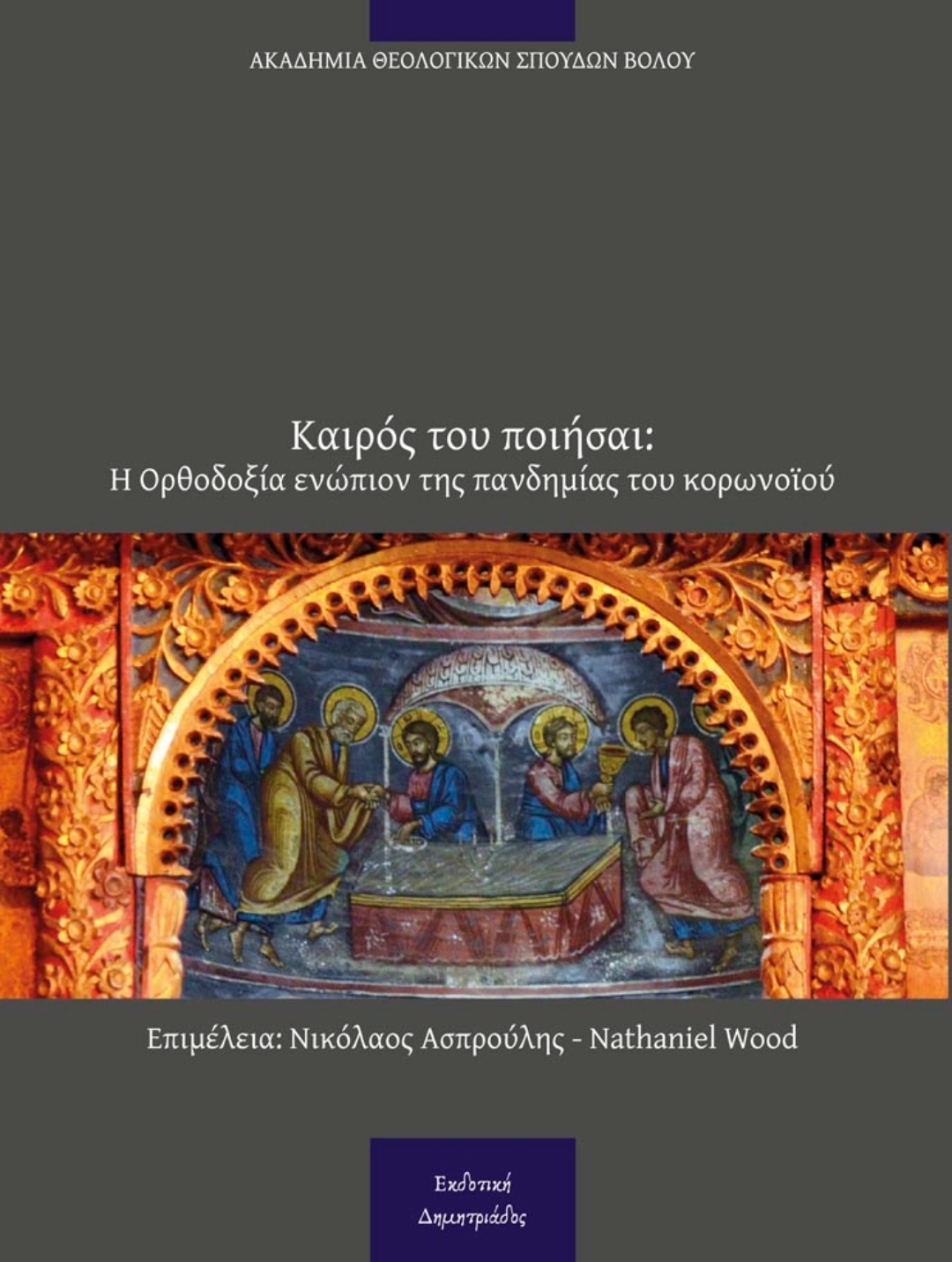Vandana Sukheeja: Assistant Professor English, Miri Piri College Bhadaur Distt. Barnala 9914150650 [email protected]
Επιμέλεια: Εύα Πετροπούλου Λιανού
I Belong to You: A Treatise on Cosmic Culture is a philosophical book dealing with the pertinent questions of life and death faced by intelligentsia. Meaning of life, the value of self-existence and cosmic forces energizing a human being are a few aspects which mankind grapples with. Dr. Anand raises relevant questions related to the contemporary reality of life and tries to find out the answers to make the life smooth and valuable. His vision is philosophical as well as spiritual. The focus of this paper will be on the existence of the self and the soul and its dilemmas to keep the life balanced in the present materialistic and challenging world.
Great philosophers like Camus and Sartre propounded the philosophy of Existentialism during twentieth century centering upon the existence of human life in the world. They tried to find out the meaning of life out of absurdity. The main motive is to search for the purpose of life and their actions based on their choices and experience. Suffering and loss in life; the lack of perfection because not having control over one’s life make human life incomplete and unsatisfying. Though life is not optimally satisfying, it nonetheless has meaning. Existentialism is to seek out the truth and voyage for the true self and true meaning in life. The absurdness of the world is characterized by confusion and disorientation where the existentialists try to find out the meaning.

Dr Anand, in his book I Belong to You: A Treatise on Cosmic Culture tries to find out the meaning of life and soul as human beings determine meaning of their life through their own consciousness. Though unlike Existentialists, Anand does believe in the existence of God and considers human life as the most precious gift of God. And to live this life gracefully and purposefully and attain the true salvation is the real goal of life which Anand explains skillfully and exquisitely in his book. And what is of great importance is that this book has been translated into Persian by Prof. Nargues Mohammadi, University of Mashad and is also under publication in Tehran.
We all have an identity as living being and milk of human kindness flows in all human. Therefore, to love everything and everybody is the fundamental characteristic of human. Self is the most important part of a person and that is to be taken care of because God lives in the pure and pious heart. We clean our homes, temples and but don’t clean our heart where god dwells. Devout soul is as near to God as a child to its mother. Anand avers: “Soul and god are related in the same sense as ‘Khud and Khuda’” (P 3). Therefore pure heart is the essential condition to be the dwelling of God and God loves such souls. The main goal of human life is to attain self realization through god realization. All scriptures talk about eighty four lakhs of births cycles. Among them the human life is the supreme, which has the capacity of thinking with logic and attaining knowledge. God can be realized only in human life and through it one can understand oneself.
Role of family becomes significant for the proper development of the self. Disturbed families create disturbed societies. In joint families a child has different type of social upbringing which consists of love for all family members. Sharing, compromise, respect and many other aspects of personality are developed in such families. But now a days in nuclear families, “synergy is absent from home. Harmony is a rare visitor. Conflict is a regular guest” (P 48). The personal life and privacy of a member gets the top priority in a family. There is a lack of communication and sharing of ideas between family members as everybody is busy in his or her life. The stressed and depressed life of corporate sectors takes the toll of peace and harmony in a family. Anand avers, “A generation of insecure people is coming up” (P 28). Parenting is becoming the most difficult task for young generation in spite of all knowledge and education. Careers, wealth and prosperity are being preferred instead of love and family.
Another aspect that Anand touches poignantly is marriage. Marriage has become a sort of compromise. “Love is absent altogether” (P 27). The priority is given to caste, property, social status, wealth, education. Understanding of the person comes at the last. Anand is such personality who believes in spiritualism rather than religion. He believes in God not of Hindus, Sikh, Christians as Buddhists but almighty one who is omnipresent, omniscient and omnipotent. According to the writer “God is nowhere but inside a human being and everybody belongs to him, where is the reason for infighting, brawls, riots and killings” (P 6)? Spirituality is different from religion. Religion deals with the “physical structures, formal living, shapes and sounds, songs and hymns, whereas spirituality belongs to the other half of man, the real half” (P 6).
Religion teaches love, sympathy, cooperation, tolerance and co-existence and if people are deeply religious why there is so much intolerance and discord among people. It is because religion has failed to teach good things or people have failed to implement the teachings of Holy Scriptures in their life. “Religion unites never divides” is a wonderful saying. Age-old scriptures are not wrong; people do not try to understand them rather misinterpret them because of their selfish motive. Anand writes that there are very few people who “are immune from the negative dimensions of religion which is showing up like cancer in the human mind and in the social fabric” (P 23).
People are in disagreement with each other. Their ego doesn’t let them compromise. Lack of acceptance and adaptation leads to disagreements and disagreements further lead to conflicts and confrontations. It further affects peace and harmony in personal as well as professional life. The uneasiness and discord lead to the discontentment and lack of satisfaction in one’s life that give rise to the absurdity and meaninglessness of life.
Man has created distinction and differentiation among themselves. Mother Nature doesn’t differentiate between anything. Sun gives light to each and everybody; wind blows for everyone, moon gives its cooling effect to all, flowers smile for everyone. There is no difference on the basis of religion, caste, colour and creed. Hindu, Sikh, Muslim, Christian, Buddhists, Brahman, Khatri, Vaish, Harijan, male, female, poor, rich-all are same for Mother Nature and she provides her bounties for everyone without any partiality.
But man, in spite of being created in the image of God has engulfed himself in the mirage of differences. His selfish attitude does not let him out of it. His mind-set of superiority, “a desire to prevail over others, intolerance, anger, aggression and killings” (P 86) have doomed the man to the lowest state.
According to Dr. Anand this world consists of two types of people-those who “want to possess” (P 38) and others who “believe in giving away” (P 38). This world is called ‘Kaliyug’. Its because of such saints that the world is going on. Such people do not prefer wealth and possessions rather they believe in ‘Sacha Sauda’ of Guru Nanak Dev ji. They are full of milk of human Kindness. Passion, compassion and sympathy are their traits. They try to convert violence and treachery prevalent in the society into peace and harmony. Their helping hands try to lessen the woes and sufferings of poor people. The blind pursuit of wealth and pleasure of avaricious people lead to the restlessness and competition and conflict. Anand says, “Because the fountain-head of joy is not wealth. It is giving away” (P 74). To create the balanced world everybody, especially rich and affluent need to help the poor and needy. “The world will become a heaven” (P 76) with the equal distribution of wealth. The ripeness of mind and desire to help others is the real aim of life. Achieving and sharing bring contentment of life. Andrew Carnegie shared all his achievement and wealth with the needy.
According to Anand, “It is the human heart that rules the whole being of man” (P 57). There is always a tussle between mind and heart. Earlier one is supposed to be the logical ground of man and later is the emotional part. “It is the human heart which is the breeding ground of longings, of desires, of wishes, of dreams, which drive men to use their brains and their mind to realize those dreams” (P 57). Desires are the breeding ground of action of human beings which go on multiplying fast and have no end. Man tries to fulfill his desires by hook or crook. Prisoner of his desires, the person forgets right or wrong, ethics and morality. But positively, desires are the aspirations which a man tries to achieve, which becomes his goal.
Man is known as the ‘homo sapiens’, the wisest creature on this earth because he has the ability and capacity to think logically and evaluate. Anand says, “He uses his mind activated by his empirical education to acquire, grow, fatten before he finally flattens under the pressure of elements” (P 68). But sometimes he uses his logic to fulfill his ulterior motives and harm others. Man even tries to “bribe gods with his offerings” (P 70). It’s in his power to make his life hell or heaven. Christopher Marlow’s Dr. Faustus, the so called wise and educated character sold his soul to Mephistopheles for worldly pleasure. His mercy appeal to relieve his soul has no effect on Satan. His worldly pleasures cannot buy him the real salvation and he has to fall into the doom.

A person in the blissful state always lives gracefully and gratefully. The tragedy of human life is that “he has ceased to be grateful to his creator” (P 85). God has created man in his own image and created plenty of things in nature to be enjoyed by man. Human body is wonder of wonders. Two eyes, nose, tongue, ears, hands, legs are the wonders created by God. The internal system, breathing process the whole system makes us wonder. Over and above, the natural beauty, the Sun, the Moon, wind, flora and fauna are produced for man’s use and benefit. God has given so much to man but man has become ungrateful and turned into selfish monster lacking love, compassion and sympathy.
Moreover “negative attitude” has “increased human unhappiness.” (P 101) Man is gloomy not because of himself but due to happiness of others. Man’s inferior motives and narrow thinking does not let him enjoy in the happiness of others. He never looks inwards. A man must have mind that is able to “include the entire universe in our mental processes” (P 115). Such conditions should be created where life becomes a movement in bliss and harmony.
The actions and its results faced by human beings are the consequences of a person’s action in his past life. It is based on ‘Theory of Karma’. Lord Krishna says in Srimad Bhagvad Gita, “You certainly have the rights of prescribed activities but never at anytimes in their results” (Gita). The happiness or sufferings born by a person in this life depends on his actions in the past life. Anand avers: “Whatever is delivered to us is neither more nor less than what we have earned by our ‘Karma’ (P 24) and further adds, “God simply stands aside, looks at man and smiles” (P 24). A human being is a part of a larger being; he is a mixture of the earth, the sky, the fire, the water and the soul. And after death all things meet with their source and soul will meet the super soul. The life becomes worthy if we understand the “dynamics of life and death” (P 31). Death is nothing but the change of apparel that is body. As a body changes clothes, similarly the soul changes body to take a new shape unless it meets the super soul and achieve salvation fulfilling its purpose of coming on this earth.
After attaining salvation, it becomes easy to comprehend that life is nothing but simply a bubble of water and God knowledge make us aware that we all are children of one God. Life is a heavenly gift on this earth and to be spent with love, tolerance and compassion for each other. Love is the most pious feeling of mankind called the panacea of life. Anand writes, “If you cannot love, you have no right to live on this earth” (P 80). Loving is living and if you cease to love, you cease to live. Love creates belongingness and attachment that bring happiness in life. The person achieves a blissful state of heightened achievement.
Anand, as a spiritual philosopher has elegantly guided us to follow the path of blissful and harmonious life. His spirituality has as essence of all holy scriptures teaching the way of living life feeling belongingness with the whole world and with vision of world without walls. Unity among human beings must be empowered in the world divided by feelings of narrow-mindedness and intolerance. The humanity must be groomed and human values must get strengthened to beautify the earth.
Bibliography
Anand, J.S. I Belong to You: A Treatise on Cosmic Culture. Jnanada Prakashan: New Delhi, 2011.
Srimad Bhagvad Gita. Chapter 2, verse 47.


































